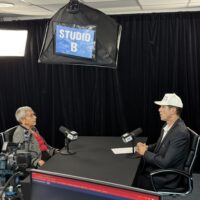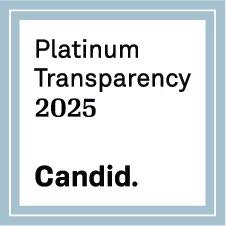“We All Belong”: Advocacy Network on Disabilities CEO Talks Inclusion on Miami Autism Dad Podcast

When Ire Diaz, President and CEO of the Advocacy Network on Disabilities, sat down with Miami Autism Dad host for a recent episode, the conversation quickly became more than just an overview of services. It became a deep dive into what true inclusion looks like in Miami-Dade County—and why advocacy remains as critical today as it was when the organization first opened its doors.
The episode is part of the growing podcast network from Miami Community Newspapers, a family-owned media company that has become a go-to source for daily news, podcasts, and community updates across the county. Through neighborhood publications, exclusive podcasts, and newsletters, Miami Community Newspapers highlights the culture, voices, and issues shaping Miami.
From Parent Coalition to Countywide Voice
The Advocacy Network on Disabilities traces its roots to 1972, when a coalition of parents joined forces to secure services for their adult children with developmental disabilities. Formally incorporated in 1975, the organization has grown into a vital support system for families and individuals navigating disability services in Miami-Dade and Broward.
“I fell into this job and fell in love with the disability community,” Diaz said on the podcast. “We’re a network of people that help each other, create community, and make Miami inclusive for everyone.”
Inclusion Means a Seat at the Table
For Diaz, inclusion is not an abstract principle but a lived practice. “Inclusive means everybody belongs. You don’t have to fight for a seat at the table—we make the seat,” she explained.
That can mean something as straightforward as budgeting for a sign language interpreter at community events. “It’s about $85 an hour. Very reasonable. If the interpreter is already there, people who are Deaf or hard of hearing can decide to attend the same way anyone else does. That tells them: you’re welcome here.”
Advocacy Beyond Disability Spaces
Since becoming CEO, Diaz has made it her mission to ensure disability voices are present in every policy discussion—from housing and income equity to gender and race.
Her persistence recently paid off: after three years of pushing, the Advocacy Network became one of only five agencies in Miami-Dade authorized to refer people to Florida Housing Corporation–supported low-income housing. “None of the original agencies specialized in developmental disabilities,” Diaz said. “Now that voice is finally at the table.”
The result has been transformative. Diaz shared the story of a single mother with three children, two of whom have disabilities. She had been paying $1,500 a month for a single hotel room. Today, thanks to the program, she lives in a four-bedroom apartment at less than $800 a month. “That difference is life-changing,” Diaz said.
Shifting the Language, Shaping the Future
Words matter in advocacy, Diaz stressed. At the Advocacy Network, social workers are called “success coaches,” and families create “success plans,” not treatment plans. “Families are not cases. They’re people who want to succeed,” Diaz said.
The organization also respects how communities choose to self-identify—whether that means people-first language (“a person with cerebral palsy”) or identity-first (“autistic person”). “We ask,” Diaz said. “It’s about dignity and choice.”
Meeting Families Where They Are
Unlike many agencies, the Advocacy Network’s staff travels across the county to meet people in their homes and communities. “If you live in Homestead or Miami Gardens without a car, getting to Kendall for help isn’t realistic,” Diaz said. “We go to people.”
Support may include navigating IEP meetings, securing benefits, connecting with after-school programs, or partnering with employers to hire people with disabilities. And if the Network can’t take on a case, they never turn someone away. “We make sure people get to the right door,” Diaz said.
A Message of Belonging
Asked what one phrase she would put on a billboard over I-95, Diaz didn’t hesitate: We all belong.
“We all want the same things—to be loved, to contribute, to have purpose, and to feel like we belong,” she said.



